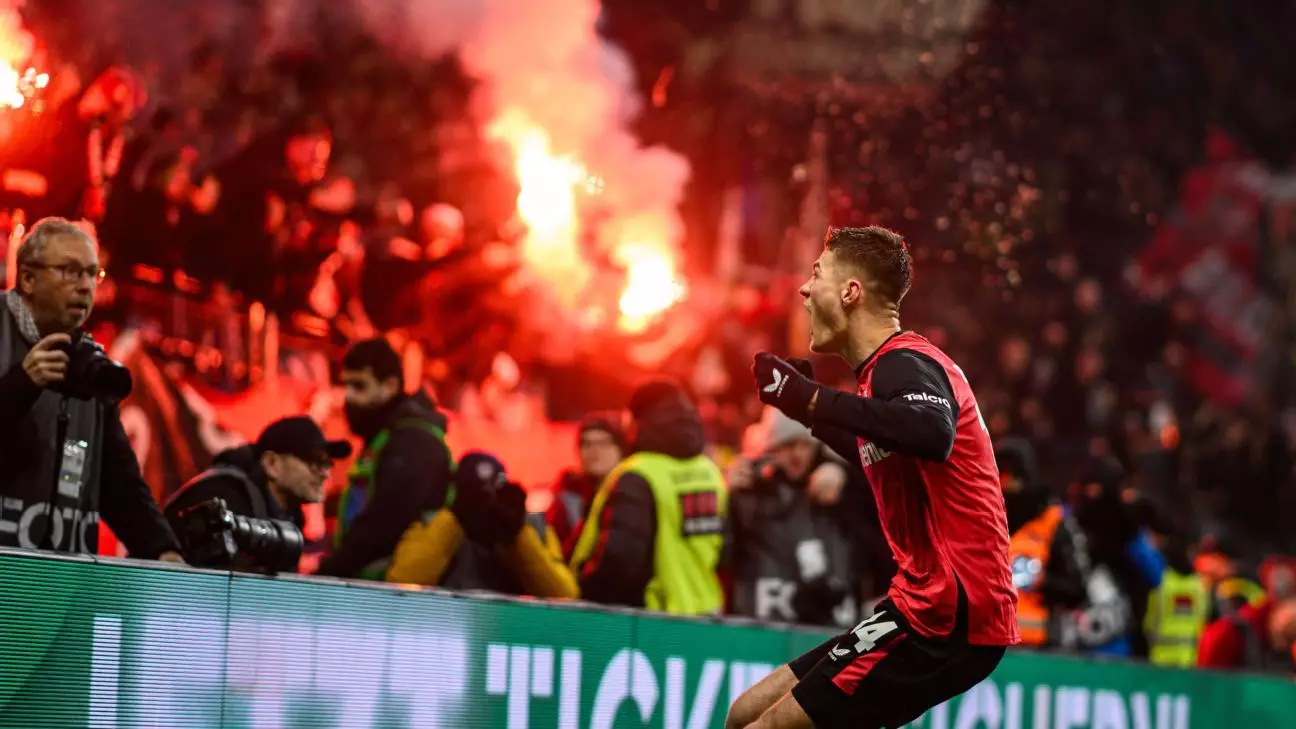The DFB-Pokal remains a beacon of hope and excitement in a world where domestic cup competitions often struggle to capture the imagination of the fans. In contrast to many countries, where cup tournaments may feel like an afterthought, the DFB-Pokal upholds a legacy that intertwines with the traditions of German football, offering an exhilarating experience that fans come to anticipate each year.
One of the hallmarks of the DFB-Pokal is its well-structured schedule that captivates audiences across Germany. Kicking off in August, the tournament begins with matches played at the homes of lesser-known clubs, making it an inclusive event that showcases the rich tapestry of German football. Names like Teutonia Ottensen and SV Rödinghausen may not regularly dominate headlines, but their participation in the DFB-Pokal underscores a commitment to inclusivity, allowing fans to rally behind local heroes who often face off against more prestigious opponents.
As the tournament flows seamlessly into the autumn, these midweek encounters build anticipation for the May final, traditionally held at the iconic Berliner Olympiastadion. Unlike the erratic scheduling seen in other cup competitions, every match feels integral to the larger narrative. This meticulous planning adds to the DFB-Pokal’s charm, instilling a sense of purpose and excitement that resonates deeply with supporters.
The quarterfinal clash between Bayer Leverkusen and FC Cologne showcased the tournament’s thrilling unpredictability and competitive spirit. Aiming to reaffirm their dominance, Leverkusen’s manager, Xabi Alonso, made clear his intentions by fielding a remarkably strong lineup, unlike the typical trend where managers opt for rotation. With both teams hungry for victory, the atmosphere at the BayArena crackled with energy, perfectly illustrating the passion that envelops German football.
The match unfolded dramatically, with Cologne initially taking a 2-0 lead through skillful counterattacks, only to see Leverkusen rally with a last-minute goal from Patrik Schick. This turn of events set the stage for extra time, culminating in further drama with Victor Boniface’s decisive goal. Yet, the contest reflected the ongoing tension in cup matches when Imad Rondi’s seemingly equalizing strike was disallowed due to a fractional offside — a moment sure to provoke discussions around the implementation of VAR and the delicate balance between technology and the human element in sports.
Though Cologne experienced disappointment, the narrative woven into this encounter illustrates the greatness of the DFB-Pokal. It encapsulated the essence of competition, perseverance, and community spirit, solidifying its status as one of the world’s most thrilling domestic cup competitions.
The DFB-Pokal isn’t solely a celebration of high-profile clubs; it serves as a platform for tradition-rich teams like Borussia Monchengladbach and Eintracht Frankfurt. Featuring prominently in Bundesliga discussions, these clubs symbolize a legacy replete with history. Borussia Monchengladbach, known affectionately as die Fohlen, cultivates a vibrant atmosphere at their new stadium, having transitioned from their storied Bökelbergstadion, where fans braved the elements for the pure love of football.
Monchengladbach’s passionate fan base, averaging over 53,000 per game, reflects the intrinsic lure of these established clubs. Their fierce rivalry with Eintracht Frankfurt, whose support averages even higher, promises to deliver thrilling matches that harken back to the classic contests of yesteryears. Both teams are formidable forces in the Bundesliga, challenging for European qualifications and innovating in their pursuit of glory.
As the DFB-Pokal progresses, discussions surrounding the clubs’ performances—both on the domestic front and within the cup—will invariably arise. Notably, players like Tim Kleindienst have proven that age should not be a barrier in pursuing a national team career, opening pathways for younger players alongside seasoned veterans. This blend of experience and youth creates a compelling narrative for spectators.
The DFB-Pokal remains an essential staple in the fabric of German football, ripe with excitement and tradition. For those not yet familiar with this captivating competition, the energy surrounding it is palpable. Fans witness not just a series of matches, but a celebration of football culture, heritage, and community spirit. The upcoming fixtures are sure to draw interest from both casual viewers and ardent supporters alike.
For anyone with an appreciation for grassroots and elite football alike, immersing oneself in the DFB-Pokal experience is highly recommended. Whether you tune in for the drama of a quarterfinal match or the historic final, this tournament is an invitation to embrace the heart and soul of German football. Don’t miss your chance to witness what truly makes this domestic cup competition a jewel in the world of sports.

